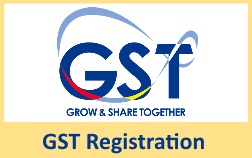Why Singapore GST Registration is Critical for Your Startup
Why Singapore GST Registration is Critical for Your Startup
Blog Article
Taking Full Advantage Of Tax Performance: Professional Tips on Browsing the GST Registration Puzzle for Small Companies
Navigating the elaborate landscape of Goods and Provider Tax Obligation (GST) registration can be a labyrinthine task for little companies aiming to optimize their tax efficiency. In this discussion, we will explore expert understandings and actionable suggestions that can empower small services to navigate the GST registration labyrinth successfully and maximize their tax obligation performance.
Qualification Standards
Qualification requirements for Small company GST Registration include particular requirements that organizations need to satisfy to adhere to tax regulations. To get GST registration, a company has to have a yearly turn over surpassing the limit set by the tax obligation authorities, which differs by country. Furthermore, companies associated with inter-state supply of products or solutions, or those offering items online, might be required to register for GST, irrespective of their turnover. It is essential for organizations to accurately determine their eligibility based on these turn over thresholds to prevent fines for non-compliance. Singapore GST Registration.

Paperwork Requirements
The called for documentation typically includes evidence of organization registration or identification, unification and address proofs of the business proprietor, pictures, bank account information, and evidence of the primary area of business. In addition, businesses need to give details of their service tasks, consisting of the solutions or items provided.
Besides the obligatory papers, organizations might additionally be called for to send added details based upon their specific circumstances. This could include files associated with partnerships, the consent of signatures, or any various other relevant contracts. Maintaining all essential documents organized and easily easily accessible can simplify the enrollment procedure and aid companies conform with the demands efficiently - Singapore GST Registration. Failing to provide the called for documents might lead to hold-ups and even being rejected of the GST enrollment application. As a result, careful attention to information and adherence to the documents guidelines are vital for this a successful GST enrollment process for local business.
Timing Considerations
Considering the important documentation requirements have actually been meticulously attended to, the next critical facet for local business starting the GST registration process is the calculated management of timing considerations. Timing plays an essential role in GST registration, influencing not only conformity yet additionally financial facets of the company. Small companies need to carefully intend the timing of their GST registration to make best use of benefits and decrease potential threats.

Furthermore, companies should align the timing of their GST registration with their operational readiness. Sufficient prep work, such as updating bookkeeping systems and training staff, is vital to other seamlessly incorporate GST requirements right into everyday operations. By purposefully handling timing considerations, local business can navigate the GST registration procedure effectively and enhance their tax efficiency.
Enrollment Refine Tips
Successfully navigating the GST enrollment procedure requires little businesses to carry out aggressive and tactical enrollment procedure suggestions. This consists of business registration papers, evidence of address, bank statements, and recognition evidence of the business proprietors.
In addition, understanding the thresholds and demands for GST enrollment based on the particular state or region where the business operates is necessary. Some states have various turnover thresholds that activate obligatory enrollment, so being educated concerning these thresholds can assist organizations intend in advance.
Another beneficial click for more info idea is to think about seeking specialist assistance from accounting professionals or tax obligation experts that focus on GST registration. Their competence can streamline the procedure, decrease mistakes, and make certain compliance with all guidelines.
Conformity Finest Practices
Little organizations should focus on conformity to avoid penalties and preserve an excellent standing with tax authorities. Little service proprietors should consistently review government standards and look for specialist advice if needed to guarantee they are fulfilling all needs. By incorporating these compliance finest methods right into their procedures, tiny businesses can navigate the complexities of GST registration with confidence and effectiveness.
Final Thought
To conclude, small companies can navigate the GST registration maze by ensuring they meet eligibility requirements, collect called for paperwork, think about timing effects, adhere to enrollment procedure pointers, and abide by conformity ideal techniques. By optimizing tax obligation effectiveness with appropriate GST registration, companies can enhance their financial management and operations.
Browsing the detailed landscape of Item and Provider Tax Obligation (GST) enrollment can be a labyrinthine job for little companies aiming to maximize their tax obligation performance.Qualification needs for Small Organization GST Enrollment include particular criteria that businesses should satisfy to comply with tax obligation guidelines. The required paperwork generally includes proof of service registration or identification, unification and address proofs of the service owner, photos, financial institution account information, and evidence of the primary area of service. Additionally, businesses require to provide information of their company tasks, including the solutions or goods provided.Efficiently navigating the GST enrollment process calls for small services to implement critical and proactive registration procedure tips.
Report this page